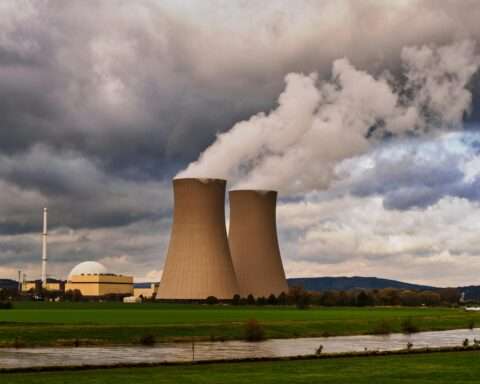The U.S. Department of Agriculture will invest $250 million to help vulnerable communities protect their homes, businesses, and infrastructure from catastrophic wildfires exacerbated by accelerating climate change, Deputy Secretary of Agriculture Xochitl Torres Small has announced.
The funding is being made available through the Bipartisan Infrastructure Law and will be allocated via the Community Wildfire Defense Grant (CWDG) program to fund 158 projects across 31 states, two territories and 11 tribes. The projects will assist in developing community wildfire protection plans and removing overgrown vegetation that can fuel fires, threatening lives, livelihoods and resources.
The wildfire crisis “is threatening people, communities and resources across the nation,” Small said. “The Community Wildfire Defense Grants are just one of many ways we are helping communities adapt to larger, more complex and more frequent wildfires.”
“Last year, over 2 million Americans across the country were displaced by extreme weather and climate-fueled disasters, including wildfires,” National Climate Advisor Ali Zaidi said. “We are making the largest-ever investment to tackle the climate crisis, while reducing the risks of catastrophic fires and making communities safer.”
The CWDG program, now in its second year, focuses on helping communities in wildland-urban interfaces maintain resilient landscapes, create fire-adapted communities and ensure safe, effective wildfire response. These goals are in line with the National Cohesive Wildland Fire Management Strategy and the objectives of the National Climate Resilience Framework.
Already-funded projects include:
- Nearly $10 million to the Cherokee Nation in Oklahoma for equipment to reduce wildfire risk through prescribed fire and thinning, as well as for firefighter education and training.
- Almost $6 million to Wasco County in Oregon to create fuel breaks and defensible space to protect communities including Maupin, Pine Grove and Tygh Valley.
- Roughly $9.9 million to The Nature Conservancy to protect communities in Archuleta County, Colo., and watersheds that provide irrigation and drinking water to downstream users in Santa Fe and Albuquerque, N.M.
The program authorizes $1 billion over five years to assist at-risk communities through grants to local and tribal communities, nonprofit organizations, state forestry agencies and Alaska Native Corporations.
The USDA’s Forest Service collaborated with tribes and states through an interagency working group to develop the CWDG program. Grant proposals undergo a competitive selection process that includes review panels comprising state forestry agencies, tribal representatives and other organizations.
“We recognize the difference this program is already having on reducing wildfire risk. This second round of investments will help communities develop community wildfire protection plans, which serve as roadmaps for addressing local wildfire risks,” Forest Service Chief Randy Moore said. “They also will fund projects to lower wildfire risk on non-federal land in communities that already have a community wildfire protection plan in place.”
The Forest Service will announce a third funding opportunity later this year.












